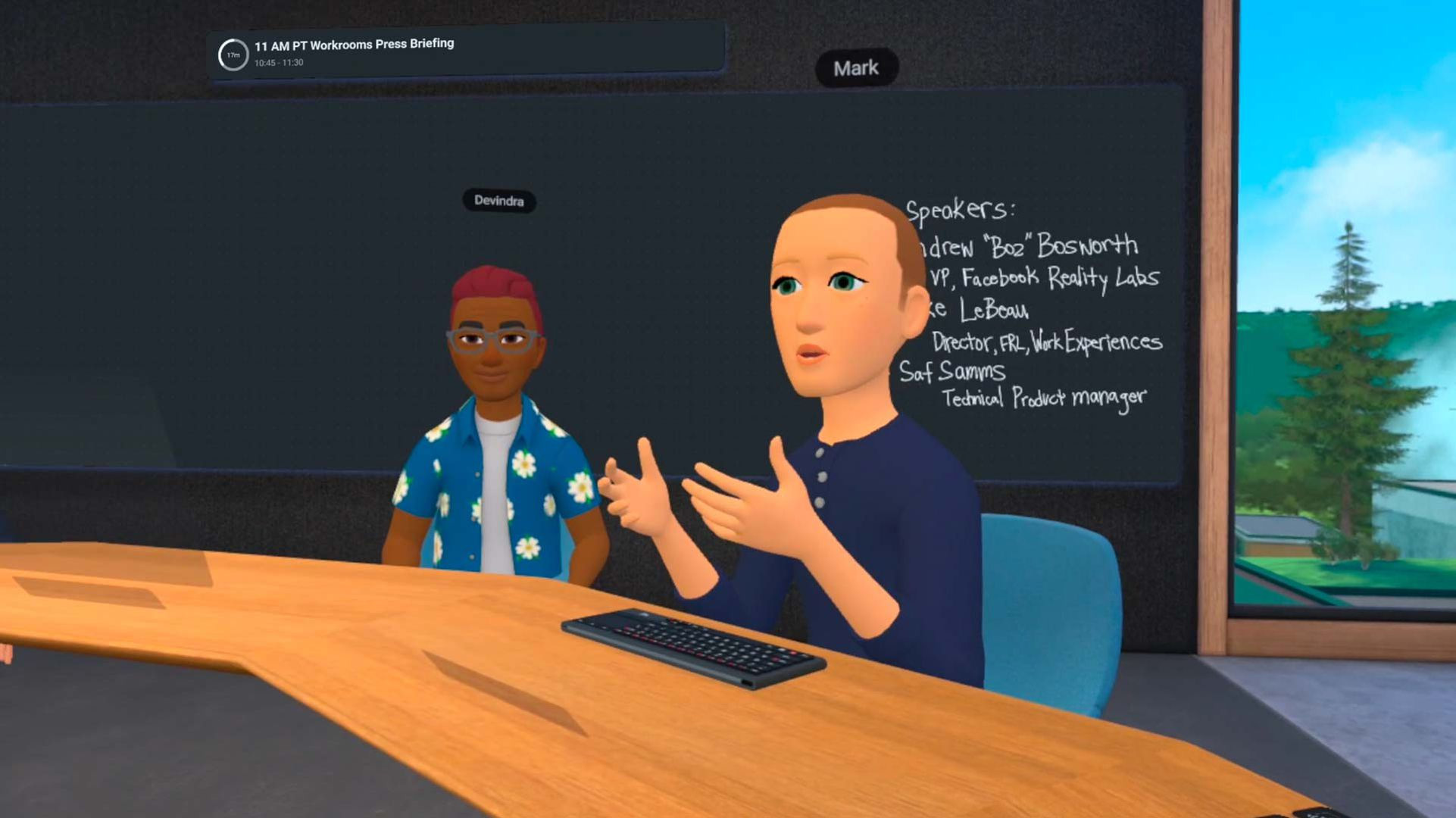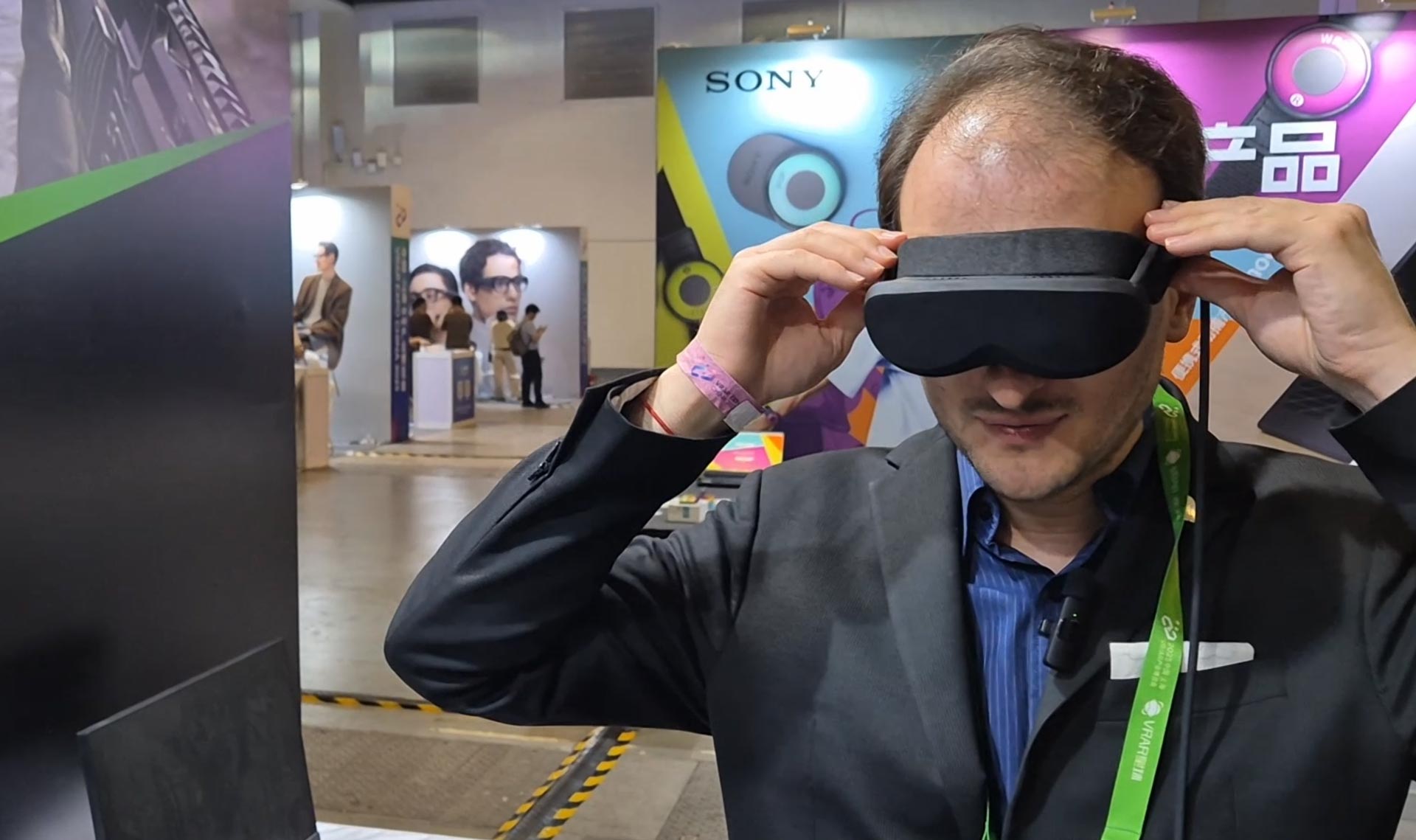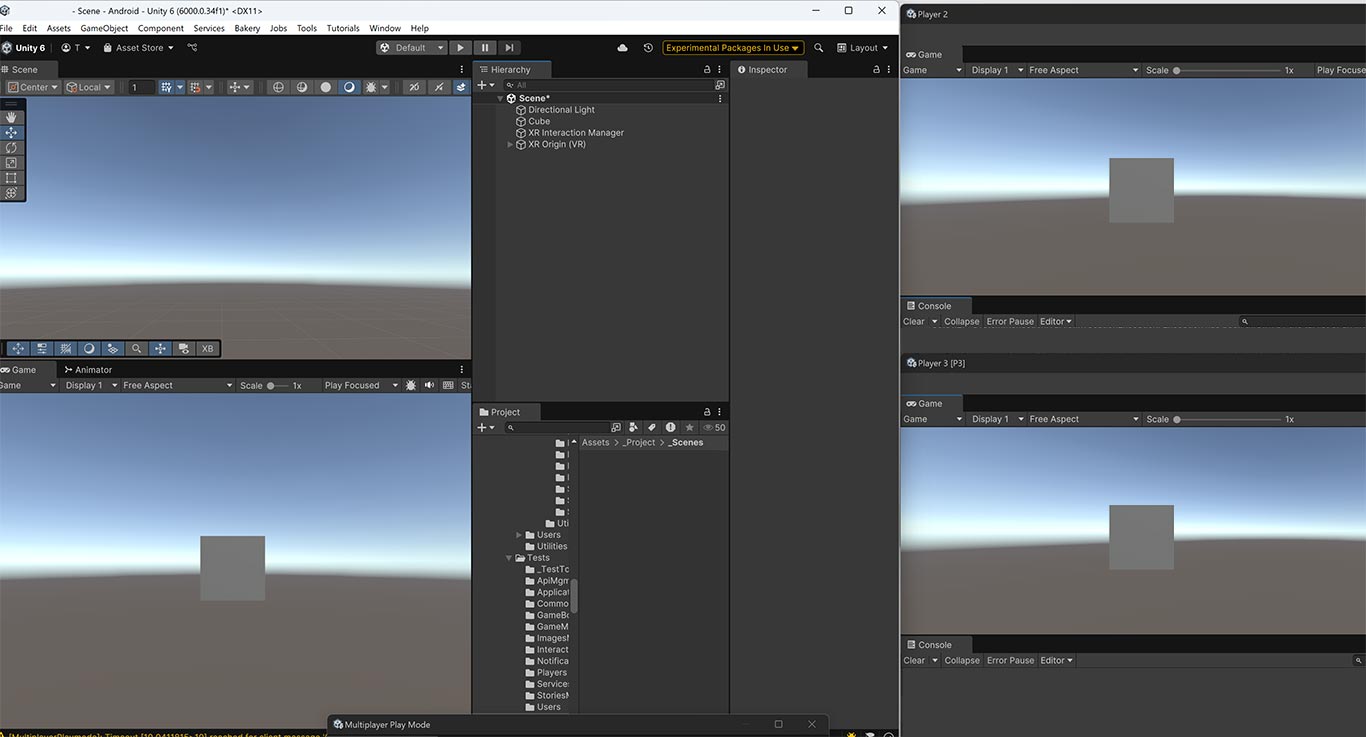The XR Week Peek (2021.08.23): Facebook launches Horizon Workrooms, Intel announces its graphics cards, and more!
大家好! These days are pretty hot here, but this doesn’t stop me from enjoying virtual reality. What I’ve not enjoyed is that SideQuest has removed The Unity Cube from its listing, stating that there were too many cubes there. I think that cubes are never enough… cubes are love, cubes are life.
Before leaving to the news: I will be at Devcom this week pitching HitMotion: Reloaded, and also at Gamescom to talk with some XR studios! If you will be there and want to virtually meet me, let me know!
Top news of the week

Facebook launches Horizon Workrooms
With a surprise move on a completely random day, Facebook has launched Horizon Workrooms, a VR application geared towards having meetings in virtual reality.
The launch has been seasoned with the usual fluff about the metaverse and how VR meetings are much better than Zoom that Facebook has chanted during the last months. But if remove all this boring stuff, the software is actually good according to the first reviews, and also introduces some innovative solutions. I have tried it myself with my colleague Max and my first impression is that it is still very limited, but it is interesting.
Horizon Workrooms lets you meet with other people in a virtual room to have a meeting. Everyone can see his/her desktop in VR, and thanks to the passthrough he/she can also see the keyboard. These features make sure that people can meet in VR and still comfortably work on their PC. People can talk, gesticulate (hands tracking is supported), and enjoy a full sense of presence. Positional audio is very well made, avatars are cartoonish but nice to see, and this realism is able to enhance the sense of communality of the participants of the meeting. It is much better than a Zoom call in this sense.
People can share their desktops with the other participants, or alternatively, they can all write on a big whiteboard. To write, you have to take your controller upside-down, so you can use it as a big pen. It’s an effective solution to simulate real writing.
The environment is very cozy, and the layout of the room can be changed to accommodate different kinds of meetings (e.g. brainstorming vs workshop). The software supports up to 16 users in VR, plus 34 users that can connect with just a webcam, for a total of 50 users. The fact that it is not only compatible with VR headsets ensures that the software is inclusive for everyone.
Facebook has not released its ambitious Horizon “metaverse”, but it’s focusing now on a part of it, that is meant to innovate how people work remotely. It is an interesting project, and I’m curious to follow its evolution. The news has been published by all the major magazines, and this for sure will create more awareness towards VR and how it can disrupt the future of work. This is great news for us all. Of course, we will have to evaluate how many users will actually use it frequently, because actually, Zoom is still much more effective than a VR meeting (that has much more friction), but Horizon Workrooms had a good start. The product is in beta and will surely evolve over time.
On the other side, as an indie, I have also to remark that as usual, Facebook is competing with successful companies (like ENGAGE or Spatial) that are in its own app ecosystem. And it does that with features that it has embedded in its own OS for the purpose and using features (like passthrough AR or the new avatar system) that most devs still can’t publish on the official store. And the product is also completely free. This competition attitude is a bit unfair and doesn’t foster a positive VR ecosystem.
More info (Facebook launches Horizon Workrooms)
More info (Hands on Workrooms by Road To VR)
More info (Hands on Workrooms by Upload VR)
More info (Hands on Workrooms by The Verge)
Other relevant news

Facebook Connect will be held online on October, 28th
Every year, the Oculus Connect, later (sadly) renamed as Facebook Connect, is the biggest event about XR from Facebook. It is a great occasion to hear amazing talks by people like John Carmack and Michael Abrash, but especially of seeing the launch of interesting hardware and software.
This year the conference will be held online for the second year in a row, but for sure will be a must-watch. Facebook has many amazing things in the works: smartglasses, Quest 2 Pro, Facebook Horizon, Assassin’s Creed in VR, Resident Evil 4 VR… and some of them will be launched during the Connect. It will be also the occasion to hear Zuck talk about the vision he has for his company and the “metaverse”. On October, 28th there will be the keynote, and I am not going to miss it for sure.
On a separate note, we all hope also that Valve as usual will try to ruin the Zuckparty by announcing something itself on the same day at the same time. If Valve people announce a standalone headset during the Facebook Connect, the VR community is going to perform a virtual standing ovation. I cross my fingers for that.
Intel abandons realsense and enters the graphics card business
This week we had two interesting news coming from Intel.
The first one is that it is winding down its Realsense line. This comes as no surprise, considering that it was a very niche product. Realsense had been born with the idea of being a smaller Kinect, that could enable applications like face recognition and hands/body tracking for natural interfaces, both on standard laptops and XR applications. It wasn’t bad, but it never took foot, also because it was less powerful and less famous than Kinect. It is anyway a pity because it was useful in certain applications. With it, Intel abandons another sector of XR, after having ditched its VR/AV (yes, augmented virtuality!) Alloy headset some years ago.
For a product line that goes away, a new one comes: Intel wants to enter the graphics card business and compete with ARM and NVIDIA with its Arc line. Arc products will be released in “the first quarter of 2022” and will be based on a GPU codenamed “Alchemist”. They will feature all the most common features in today’s graphics cards like ray tracing and supersampling. We don’t know much more about them, if not their launch period.
Intel could exploit the stock problems that its competitors are having, but it is not clear how big will be the availability of its graphics cards: some informed reader says they are based on TMSC chips, so they suffer from the same supply chain problems of other graphics card vendors.
Personally, I do have not good vibes about it. Intel already tried in the past to enter the graphics card market, with no success. Plus competing with companies with enormous expertise like NVIDIA and AMD is very hard. Sure, Intel knows how to make integrated cards, but dedicated ones are a different beast. I hope to be proven wrong… more competition is always better.
(Thanks to Mathew Olson for the news on the graphics cards)
More info (Intel shutting down Realsense)
More info (Intel planning to launch new graphics cards)
News worth a mention

Axis proposes motion tracking on Kickstarter
A new interesting project has been published on Kickstarter: it is called Axis, and it is a system of sensors that you install on your body to have full-body tracking for gaming and motion capture. It is quite affordable (around $400–500), and its advantage over Vive Trackers is that it doesn’t require external cameras or sensors, so it can also work with Oculus Quest.
On paper, it looks cool, but I have not been able to find reviews about it yet, so caution is advised.
Nex is a new algorithm to recreate scenes for VR
Nex is a new research algorithm able to reconstruct completely scenes using just a set of photos. Given some photos of an environment, it can reconstruct how it would look from other points of view. It is not like photogrammetry: it can also consider reflections and other tricky elements that would move coherently following your new point of view.
This is not the first algorithm of this kind (the state of art is a similar one called Nerf), but this is special because it can run in real-time, so you can also look at these reconstructed scenes in VR. Similar algorithms will be amazing to let you enter all the environments you want with a VR headset.
Another article about the Metaverse
Every week there are thousands of articles about the “metaverse” being published, and most of them sound all the same. From this week I cherrypicked this one I’m linking below because of an interesting idea about how to manage files: instead of organizing them in folders, we could organize them in spatial references, exactly how we remember where things are in real life.
Audio AR allows for interesting applications
Always remember that immersive realities encompass all five senses. This article on Wired talks about a startup that uses just audio to make you and another player live an interesting adventure in the place where you are. A local multiplayer storytelling adventure lived only through audio cues: it’s very original.
You can now invite your Oculus friends to play with a web link
Facebook has just introduced a cool feature that lets you invite your friends to play with your Rift or Quest games by just sending them a web link. This is a solution that has already proven to reduce friction and so to be more effective in making people meet (it has been one of the reasons for the success of Zoom, for instance), and will help for sure all the lovers of VR multiplayer games.
Discover AR fashion
Vogue Business has written a good article about what is happening in the AR fashion scene. Immersive fashion is one of the big trends of the moment, so if you don’t know much about it, I suggest you read this post.
Some news on content
- Fracked has been reviewed by both Road To VR and Upload VR, but it doesn’t seem to live up to the hype. The game is nice, but not as majestic as we hoped
- Carrier Command 2 shows us that VR support of a desktop game should be thought carefully because otherwise the results are terrible and the users value you negatively
- Windlands arrives on Oculus Quest, but on App Lab and not the official Store
- Painting app Vermillion is now available on the Oculus Store for Rift, waiting for the Quest release
More info (Fracked review on Road To VR)
More info (Fracked review on Upload VR)
More info (Analysis of Carrier Command 2)
More info (Windlands on App Lab)
More info (Vermillion released for Rift)
News from partners (and friends)
The International VR League (IVRL) is a newly formed esports league comprised of seasoned VR esports players with the mission of making a league, “for the people and by the people.”
IVRL will launch August 30th with a “Summer Showdown” tournament for Onward open to players 16 and over. Interested competitors can assemble their teams and sign up on the website starting August 17 at IVRleague.org. Have fun with VR esports with IVRL!
Learn more and register
The amazing VR painting app “Painting VR”, which offers realistic painting capabilities, is planned to launch in 2022 for Oculus Quest. The company behind it is also organizing a Kickstarter campaign to further develop its product. Join it to support these cool devs!
Learn more (Painting VR on Oculus Store in 2022)
Learn more (Painting VR on Kickstarter)
Some XR fun
Don’t say metaverse, don’t say metaverse, don’t say metaverse
Funny link
Watch this cool 360 video about playing the Star Wars theme! (A bit funny, a bit cool)
Funny link
Who needs 5G when we have pigeons?
Funny link / 1
Funny link / 2
Oculus Support is a Sith Lord
Funny link
What a beautiful sunny day to enjoy VR!
Funny link
I Expect You To Die in real life
Funny link
A truth about WebXR
Funny link
Let’s thank who made this roundup possible
This roundup of useful AR/VR news has been possible thanks to the help of the people that donate on Patreon to this blog and support my hard work.
Here you are their names:
- DeoVR
- Raghu Bathina
- Jonn Fredericks
- Jean-Marc Duyckaerts
- Reynaldo T Zabala
- Ilias Kapouranis
- Michael Bruce
- Paolo Leoncini
- Immersive.international
- Bob Fine
- Nikk Mitchell and the great FXG team
- Jake Rubin
- Alexis Huille
- Jennifer Granger
- Jason Moore
- Steve Biggs
- Niels Bogerd
- Julio Cesar Bolivar
- Jan Schroeder
- Kai Curtis
- Francesco Strada
- Sikaar Keita
- Ramin Assadollahi
- Jeff Dawson
- Juan Sotelo
- Andrew Sheldon
- Chris Madsen
- Tracey Wong
- Matthew Allen Fisher
- Horacio Torrendell
- Andrew Deutsch
- Fabien Benetou
- Tatiana Kartashova
- Marco “BeyondTheCastle” Arena
- Eloi Gerard
- Adam Boyd
- Jeremy Dalton
- Siciliana Trevino
- Joel Ward
- Alex P
- Marguerite Espin de la Vega
- Sb
- Vooiage Technologies
- Caroline
- Liam James O’Malley
- Paul Reynolds
- Hillary Charnas
- Wil Stevens
- Matias Nassi
If you like what I do, and you want to support me as well in informing the XR community, click the link here below and join my Patreon group!
(Header image by Facebook)
Disclaimer: this blog contains advertisement and affiliate links to sustain itself. If you click on an affiliate link, I'll be very happy because I'll earn a small commission on your purchase. You can find my boring full disclosure here.



